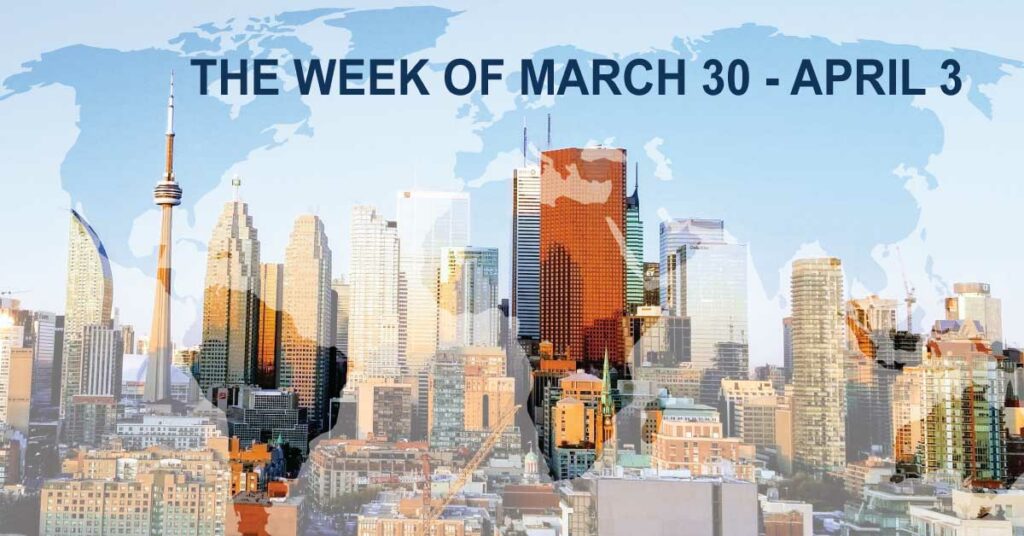
William’s Weekly Economic Recap
for the Week of March 30 – April 3, 2020 (view as PDF)
William Chin, MBA
Portfolio Manager & Chief Technical Analyst
William Chin, Chief Technical Analyst for Caldwell Investment Management Ltd. (“Caldwell”), is the lead Portfolio Manager on the Tactical Sovereign Bond Fund and Portfolio Manager for the fixed income portion of the Caldwell Balanced Fund. He also advises fixed income portfolios for affiliate Caldwell Securities Ltd.’s separately managed account platform and contributes to the Caldwell Investment Management Ltd. team’s research, specializing in macro-economics, currency risk management and technical analysis. William is a member of Caldwell’s Investment Risk Committee.
William has over 35 years of international investment experience in the areas of portfolio, currency risk and treasury management. He began his career in the currency market, progressing to the role of treasury manager for a large international bank. He was first registered as a Portfolio Manager with the Ontario Securities Commission in 1999 and managed high net worth client portfolios on a discretionary basis prior to joining Caldwell.
William has an MBA in economics and international finance. He has been a volunteer and a board member for the Canadian Society of Technical Analysts since 2001 and is their former President (2012-2014).
William is a frequent speaker on macro analysis, monetary policy and technical analysis.
Macro Update
- Purchasing Managers Indices’ (“PMIs”), released this week for major economies, are in contraction mode. To make it worse, the PMIs are skewed higher by ‘delays from suppliers’, a sign of strong demand in normal times. Unfortunately, in the current environment, the delays are the result of broken supply chains.
- U.S. March ‘non-farm payrolls’ fell 701,000. The unemployment rate rose to 4.4% from 3.5% prior. The ‘household survey’ shows a loss of almost 3 million jobs. To put the number in perspective, the ‘back-of-envelope’ estimate by the Federal Reserve Bank of St. Louis has the unemployment rate going up to 30%, which would be close to 49 million job losses.
- The Canadian employment report has been postponed to Thursday April 9, 2020.
- According to Bank of America, as of March 24, 2020, U.S. consumer spending data on average fell 30% yearover-year, but with huge divergences.
- While data is overwhelming, a glimpse of the future can be found in monitoring the progress from the medical research community in their fight against the virus. Apart from Abbott (testing equipment) and Johnson & Johnson (vaccine) that were mentioned here, there are more companies that are working to find solutions. Further progress in the fight against the virus should bring more clarity in the healthcare system and thus the time required before returning to normal, risk assets are on a better footing as a result.
- Treasuries held in custody at the Federal Reserve on behalf of foreign central banks, sovereigns and reserve managers dropped by $109 billion in March – the biggest monthly drop in history.
- Crude, on the hopes of a joint U.S., OPEC and Russia meeting next week to reduce supply, rallied. However, International Energy Agency (“IEA”) says an OPEC+ cut of 10 million barrels per day (“bpd”) is not enough to stabilize the oil market. Even with the cut, they see a potential 15 million bpd build in supplies. The most vulnerable U.S. shale producers cannot cut production without a bailout.
- TC Energy Corp. and Alberta Premier Jason Kenney announced the $7.5-billion deal to begin construction on the long-delayed Keystone XL pipeline
